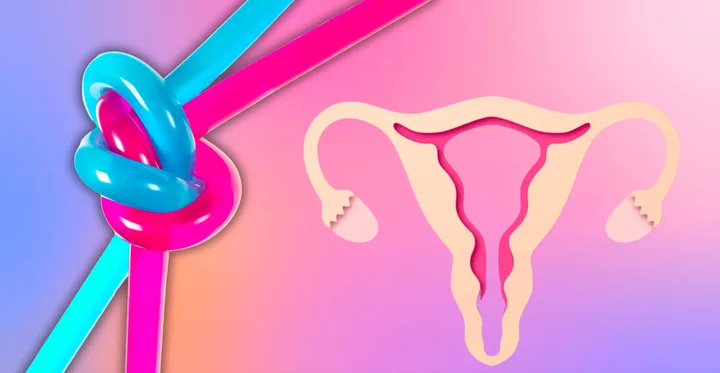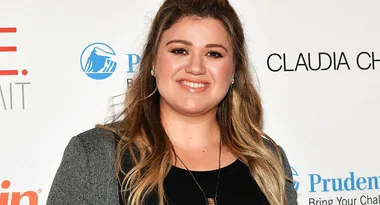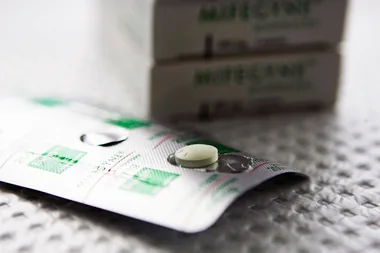The video begins like most gender reveal announcements. A glossy sealed box, packed with promise, teases at the results of an unborn baby’s sex. Beside the package, 24-year-old Los Angeles-based Abby Ramsay waits eagerly for the cue of pastel balloons and confetti.
Instead of a candy-coloured explosion, Ramsay retrieves a medical file from inside, revealing the paperwork for an approved “sterilisation” surgery. “I’m excited to take control of my own body. I’m not a baby maker,” Ramsay writes in the video’s caption.
Ramsay, who identifies as non-binary, and a growing cohort of women in their twenties are choosing to remain child-free through female sterilisation surgery. Also known as tubal ligation,it is a permanent procedure that seals, cuts or ties the fallopian tubes, creating a physical barrier between sperm and egg, which is proven to be more than 99 per cent effective in preventing pregnancy.

On TikTok, the hashtag #tuballigation has more than 160 million views, with the topic sparking a heated global conversation about choosing a child-free life without hormonal contraception.
“I’ve known for a long time that I did not want to have kids,” explains Ramsay, now 27. “The idea of pregnancy has always terrified me but, growing up, it always seemed like it was an eventuality. When I learnt that I didn’t have to have children and that I had a choice, it was a big relief.”
The week after the Supreme Court of the United States overturned Roe v. Wade (which had protected the right to abortion) in June 2022, Google searches for terms such as tubal ligation nearly quadrupled.
Thousands of women flocked to join female sterilisation information groups on social media, while others booked medical consultations. “When the news first broke about Roe v. Wade, I felt like I had crossed this sick finish line in the nick of time,” recalls Ramsay, who had undergone the surgery just four months earlier. “Now, I’m watching everybody else struggle to try to get there before everything ends. Post-Roe v. Wade, the information about sterilisation on the internet changed from fun facts to, ‘If you really need tubal ligation, this is where you need to go.’”
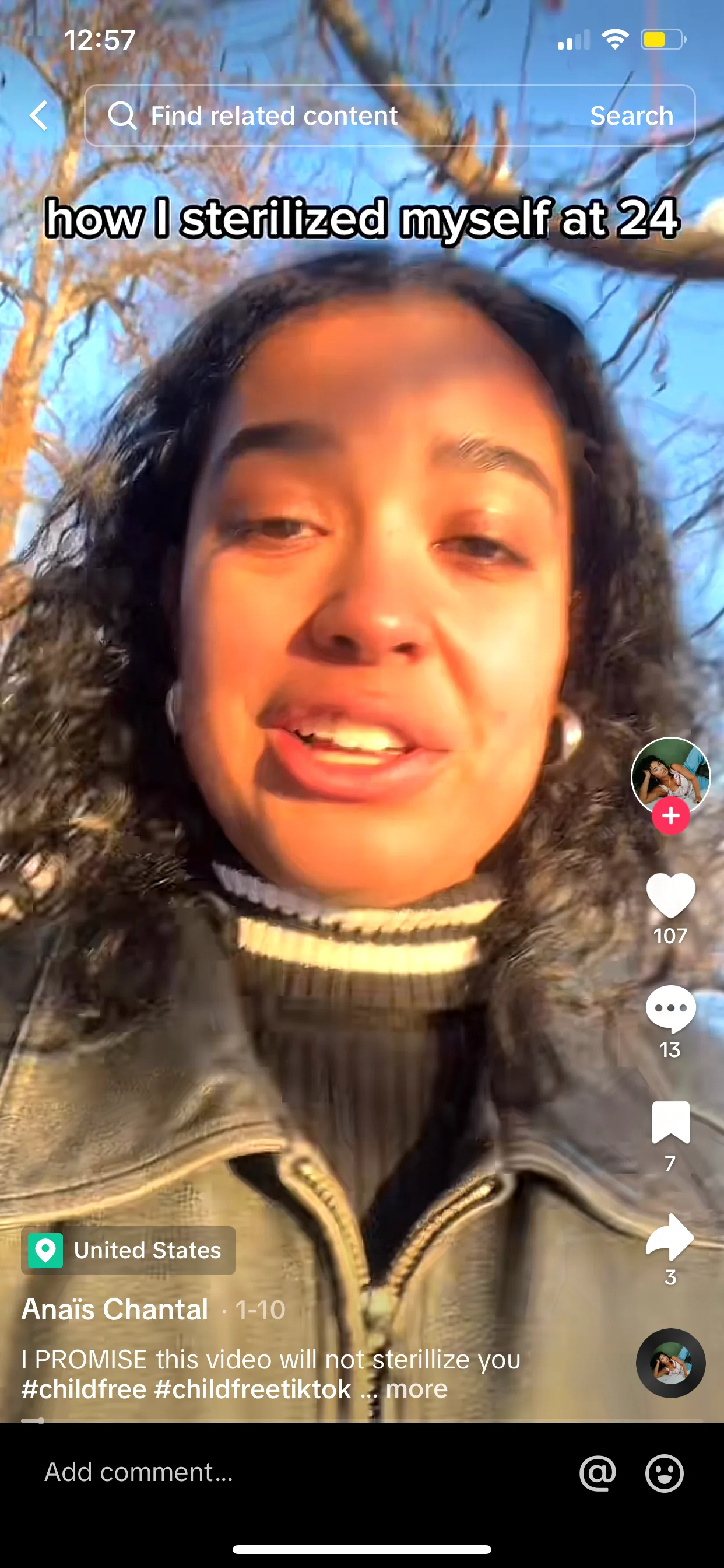
Despite Australian women not being directly affected by the same archaic abortion bans as the US, women’s health doctors here have observed a significant increase in demand for tubal ligation among those in their twenties and thirties.
“I’ve definitely noticed a lot more young women wanting [tubal ligation],” says Dr Emma Boulton, a doctor and director at Sydney sexual health medical practice Clinic 66. “We’ve found the reasons behind their decisions range vastly from climate change to simply feeling that the world’s got enough people in it.”
For 36-year-old Queensland-based Coco Bae, the decision to seek sterilisation was deeper than a lack of maternal inclination. “I had my tubes tied when I was 29,” she says. “I’ve never felt a desire to have children, but in my late twenties my decision was really solidified by everything that was going on in the world, which at times feels bordering on dystopian.”
While public attitudes about women’s bodily autonomy have seen seismic progress in recent years, many seeking sterilisation say they have been forced to confront a rampant culture of misogyny in the medical field, with a number of women reporting that they feel some doctors have undermined their decision.
“Medical doctors are notoriously paternalistic,” says Boulton. “Doctors will often say they know what’s right for your body, which is bullshit. Lots of people do all sorts of permanent things to their bodies, and they don’t need the permission of their doctor.”
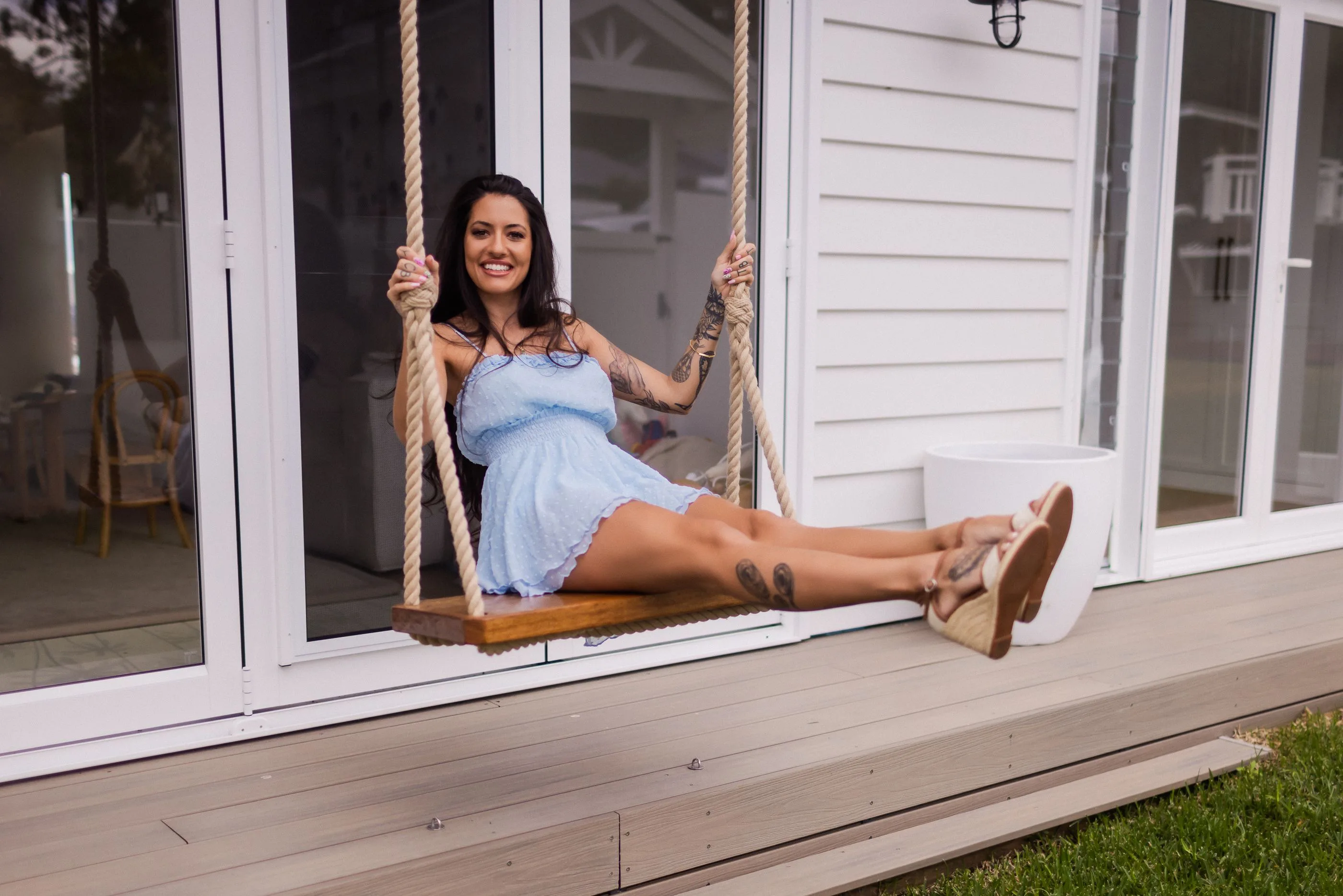
The first time Ramsay told her doctor that she wanted her tubes tied, at 18, she was brushed off as immature and given a prescription for the pill. “Birth control was a huge struggle for me. The pill made me extremely ill, and I didn’t like the idea of having an implant,” recalls Ramsay, who spent six years trying to find a doctor who would agree to perform the surgery.
“When I decided those methods of contraception weren’t working, I started pushing my doctors more and more about sterilisation as an option. The first few times I asked, I was dismissed because of my age, but I wanted there to be a record that I wasn’t making this decision on a whim. This is something I had thought of and had been pursuing for years.”
In Australia, tubal ligation is available to consenting adults. (There is no legal age requirement, though it’s recommended the patient be over 18.)
However, even if you receive a doctor’s support, the cost – typically about $4500 – can prove prohibitive. “If you’re wanting to get tubal ligation done in the public sector, good luck, because it’s basically just unavailable,” says Boulton. “It’s considered an elective procedure, meaning that unless you have a life- threatening condition that will kill you if you get pregnant, you have to fork out the money.
For those who don’t have private health cover – and they’re often women who have many kids and who are financially disadvantaged – it’s very difficult for them to find somebody to do a tubal ligation, even if they’re in their late thirties or forties.”
For those who have the luxury of choice, the second hurdle is the social commentary and judgement they are subjected to as a result of their reproductive choices. “At the beginning of my journey, I shared bits and pieces on TikTok as a resource for other people considering the surgery,” says Ramsay. “I started getting heaps of comments saying, ‘You’re stupid and going to regret this when you’re older,’ and, ‘This is a slap in the face to anybody who has gone through infertility.’ It opened up such a whirlwind of opinions and reactions.”
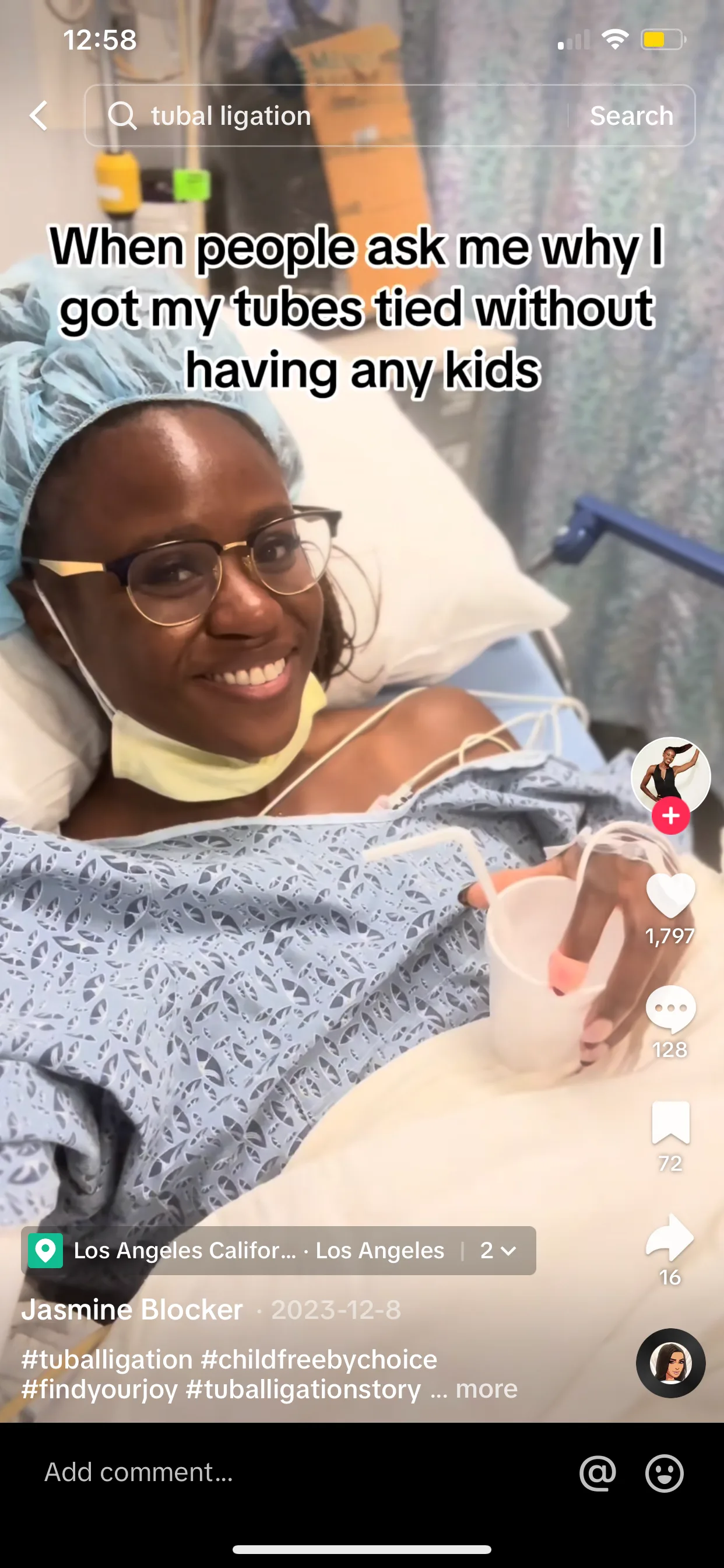
Ramsay believes that if you can legally consent to having children from the age of 16 or 17, those in their twenties should be allowed to make the permanent choice not to have them.
When it comes to tubal ligation, there is an informed consent process and an unofficial “cooling- off” period between the consultation and surgery.
A number of women’s health clinics, including Clinic 66, require an assessment by two separate doctors to ensure that the patient is fully informed and there’s no spousal coercion at play.
“I remember my doctor asking me if I was sure I didn’t want children and that I understood the procedure couldn’t be reversed,” recalls Coco Bae. “I looked her straight in the eye and said, ‘I never want to bring children into this world.’ She replied, ‘Great, I can get you a spot in six weeks.’”
Potential risk factors, such as having an ectopic pregnancy (where a fertilised egg implants in the fallopian tubes) or damage to nearby organs, are also important elements to take into consideration. But the procedure will not affect your hormones or menstrual cycle or the age you’ll enter menopause.
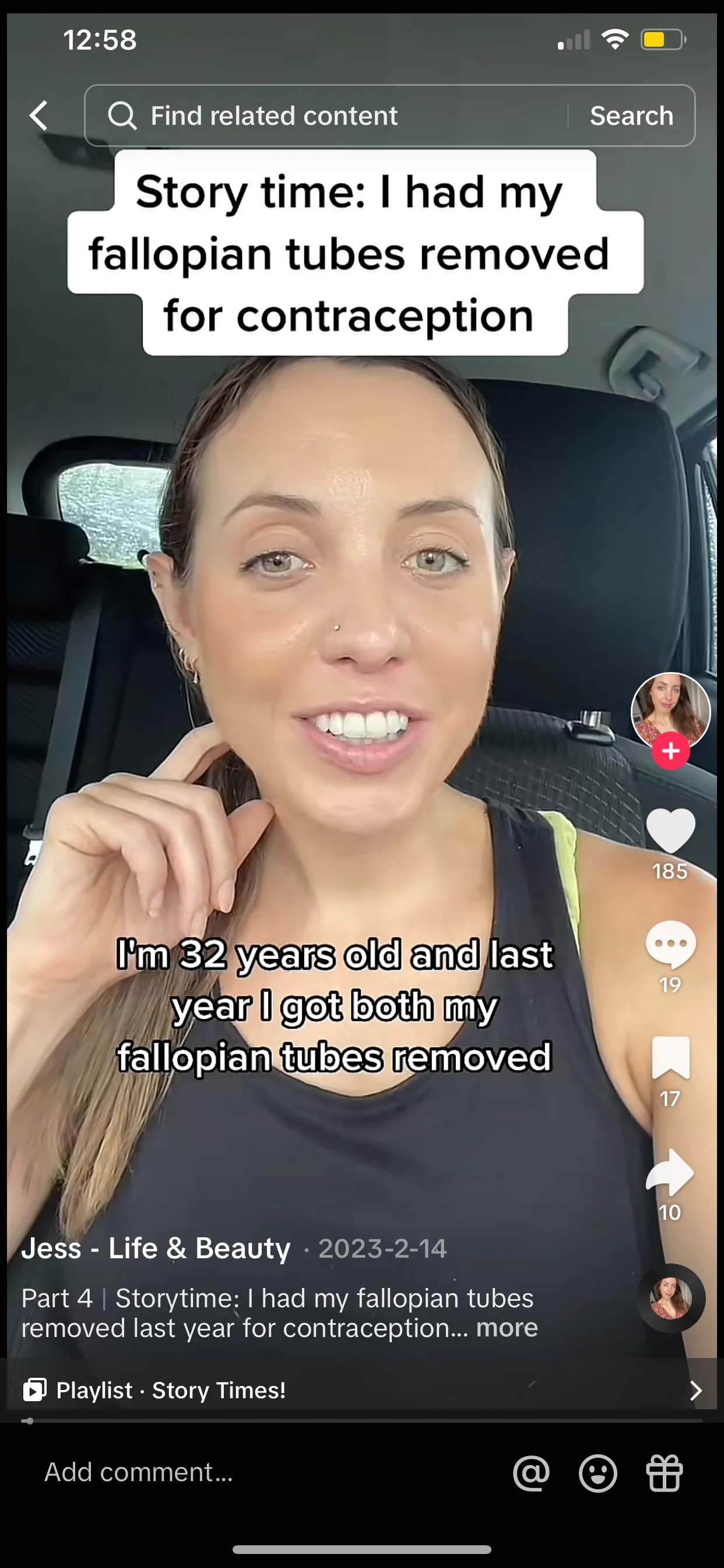
A study published in the journal Obstetrics & Gynecology found most couples who choose sterilisation are satisfied with their decision and do not experience regret. In some cases, though, people may want a reversal. It’s possible, but with varying rates of success.
Boulton says that in the case of someone changing their mind, advanced reproductive technologies, such as IVF, are available. “New advancements mean that even if people do have permanent sterilisation, there’s no reason they can’t parent a child, provided they’re still producing eggs.”
For the naysayers who don’t believe young women should be making these kinds of decisions, Ramsay has this reply: “I had one person comment on my sterilisation reveal video that in a year’s time I will regret my decision. So a year later I went back to that comment and responded, ‘Nup, still no regrets!’” she recalls. “At the end of the day, I’d rather regret not having kids than have a kid and regret it, which has kind of become the overarching [go-to] phrase for child-free people.”
Female Sterilisation Vs Vasectomy
Brisbane woman and marie claire copy editor Hilary Board shares her story.
One of the key aspects my partner, Liam, and I bonded over when we started dating was our mutual desire not to have children. We had both always felt this way and it was refreshing and exciting to have found someone who was on the same page.
About seven years later, in 2019, while on a health kick, it suddenly hit me: why am I still on the pill? I discussed it with Liam and said I’d ask about “getting my tubes tied” at my upcoming doctor’s appointment. I recall checking this rather casually at first with my female GP.
Perhaps I was too casual. I received a brush off from her along the lines of my being so young still. I was 37.
A few months later, while at an appointment with another female GP, I raised my interest in tubal ligation and my desire to know more. After squirming in her seat and looking highly uncomfortable, she changed the topic back to another issue we had been discussing. I felt confused. I’d expected more support – especially from female doctors.
Liam suggested we change tack and book a consultation at a vasectomy clinic instead. The specialist there was proactive from the outset. He asked Liam just two questions: how old are you and are you all done having children? After telling him that he was 37 with no kids, due to us being child-free by choice, the specialist replied, “Well, at that age you are old enough to know what you want.” He booked him in then and there for an appointment in a fortnight.

The vasectomy took just 20 minutes, and cost about $500. It required a day of rest afterwards, and a three-month wait before it started working (then it’s more than 99 per cent effective at preventing pregnancy).
The specialist mentioned he had noticed more and more young child-free men seeking vasectomies. He also noted that reversal surgery is possible. According to Vasectomy Reversal Australia, the procedure results in “the restoration of sperm in up to 90 per cent of men and successful pregnancy in the majority of couples … particularly when the duration from vasectomy to reversal is less than 10 years and your partner is under 35 years of age”.
I look back on this experience as an example of sexism, prejudice and how differently men and women can be treated by the medical profession. My partner was instantly heard, respected and trusted, whereas I was not – even by other women. It’s just not good enough.
